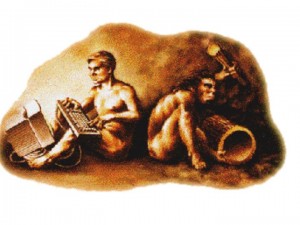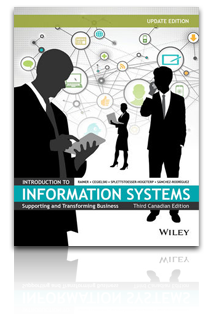Description: Some see a new “digital divide” emerging — with Latinos and blacks being challenged by more, not less, access to technology.
Source: usatoday.com
Date: Jan 11 , 2011

When the personal computer revolution began decades ago, Latinos and blacks were much less likely to use one of the marvelous new machines. Then, when the Internet began to change life as we know it, these groups had less access to the Web and slower online connections — placing them on the wrong side of the “digital divide.” Read rest of story
Questions for discussion:
- Do you agree that a new digital divide is emerging with new technolgies?
- Is this Digital Divide fundamentlly different than the “old” Digital Divide?
- Who should be responsible to help bridge this new digital divide? Who should pay for it?


Tiffany Smith
I find it hard to agree with this article, not necessarily the facts, but with what it is trying to accomplish. Or perhaps I am just confused as to what the article actually is trying to accomplish. It seems ridiculous to assume that technology is a bad thing for blacks because they use it mostly for social networking and not for something the writer of the article views as more productive. I feel like this article takes racist ideas and looks for ways to apply it to technology, searching for this “new divide”. It seems to me that the internet can do the same amount of good for an individual no matter how they access it. I can understand that filling out an actual application could be difficult on a phone, but there are many public computers available to people that this should not be an issue big enough to write an entire article on. It could be argued that job searching via phone is better than on a lap top, as you can check sites more frequently and on the go.
Dustin
I think that as technology changes or advances so do the poeple change with it. There has always been different “Groups” of people, always have and most likely always will be. For example you might have a group of black people or a group of white people or a group of latino people. That group will most likely not change becuase of a phone in their hand or a laptop in their house. I think it will not become any more segregated any more in the future as it is now or as it has been in the past. I dont think this new “digital divide” is any different than the old one. The people that we suround ourselves in everyday life, I think are the same people that we communicate to on the web. Indeed topics like this one are a never ending topic. Its a new way to communicate.
Jenn Oloya
I don’t think that there is a new digital divide emerging from new technologies. I guess segregation is happening in places such as Facebook and twitter but I wouldn’t have mattered if these networks existed or not because people are drawn to people who are similar to themselves, in the lunch room of these individuals school or at offices, there would be segregation anyways. In the aspect of blacks and Latino’s not having the same access to technology or not using the technology as productive as whites, I think that there no real digital divide most blacks and Latino’s have laptops if they don’t have a house computer and while they use their phones for entertainment reason a lot of individuals do as well no matter what their race is. If there was such a big deal about the digital divide individuals are responsible for bridging the gap themselves everyone as access to technology and can use it the way that they want it to. Schools can help bridge this gap by offering computers and classes that show how to search/apply for a job online and educate them about different ways to use the net.
Taofikat Awopeju
As computer advances so do people advance with it. there are groups of different people with different perspectives. most people love to chat on there phone because they think its more convenience and more easier for them. people tend to meet different people every day with the use of technology but most people we tend to chat with everyday are the people we see and also talk to.
DC
I don’t think there is any digital division taking place on the internet. Just like in any social circles, people using the internet are attracted to sites that fits their passion, hobbies and lifestyles.
However, in my own opinion… If you take a look at the in-depth analysis of this article, you can see a silver lining of racism.
DC
I don’t think there is any racial digital division taking place on the internet. If anything, its just a natural division, just like in any social circle were people are driven towards things that fits their passions, hobbies and lifestyles. The use of laptops and desktop computers can be traced to different levels of education obtained in different community, for example people who come from higher income earning suburbans have more chances of owning laptops than people who come from low earning neighborhoods ; where most black resides. But to link racial differences with technological advancement doesn’t teach any morals to reader but perpetuate racial hatred. People will always use technology in a way that pleases them, its not a question of race. I am still trying to find out the the moral of this article!
However, in my own opinion… If you take a look at the in-depth analysis of this article, you can see a silver lining of racism.
Rio P
I do not fully believe that there is a “digital divide” existing today for it is a matter of personal choice of why to use technology rather than a concept of how to use technology. Natural segregation occurs regardless of what medium it occurs in, and I feel as if this article is stretching to make a conclusion about the statistics that were collected. Everything that was examined in the article reveal that many more people use the internet, social networks and cell phones for personal use more than for business use, and again this relates to the ability to use technology to fulfill personal uses and purposes. Relating to social networks, it is common for people with similar attributes to spend time together and share the same social bubble, so seeing that Latinos will be friends with other Latinos is nothing surprising. However, I think that with the mass use of technology it is easier to become friends with a variety of people, of all races.
One thing about this article that I find unreliable is that there aren’t a lot of figures explaining the uses of internet and technology by age groups. I feel that younger generation, from approximately 15 – 30 use technology much more frequently than people who are older than 30, and therefore these facts aren’t a correct representation of the entire population.
Simar Kaur
I do believe that digital drive is emerging with new technologies because more technologies that are coming out are depended on the knowledge of past technologies. People that are on the technology side of the digital drive have the advantage to explore more opportunities of other technologies and these new technology are hard to be reached by people who are not technology familiar. Even though new technology may be dependent on older technologies in some cases, I do not see a racial divide. The digital drive has become more different according to this article it states that different races are becoming more interested and in my opinion I feel like the racial groups who were unable to access these things in the past are now learning to use and entertain on the technologies and there is no difference. I don’t feel that the “racial divide” that this article talks about really exists; it’s a matter of choice for people of all races to want to be involved with technology. Therefore there is no one responsible to “bridge this new digital divide” it is our own responsibility to become more aware and take the opportunity’s around us to fill the gap (ex. library, school, asking for help)
Hugh F
This article doesn’t say too much in my opinion, looking at clear financial divides and the technologies that preceded having the internet accessible on the phone. It’s not surprising that households that were the first to get their hands on this crazy inter webs stuff will also be more likely to keep to their older forms (desktops). Whereas mainstream internet usage, which has brought the internet into everyone’s hands, is heavily focused on mainstream products and services (demand products like social, shopping, sex, entertainment ect). Looking at my mom as an example back home, given how the internet has revolutionized how she talks to people and the kind fun games/shopping she can access, she doesn’t really see any reason to explore the lesser know parts of the internet. Given that these can be accessed by phone, if she was introduced to her first internet experience by phone, she would probably stick with it. This compared to myself where I have been using the internet since it was primarily an information tool and most of the ‘fun’ parts of the internet weren’t around or were in a very primitive stage.
Going back to the opening sentence though, this really does seem to be more of a statement as to the social inequalities within our system and the products it produces. As much as you don’t want to point to a poor educational system (especially in certain parts of the states), it does open your eyes when you see the biggest pile of accessible information ever compiled and made accessible to anyone, anywhere, being overlooked for social networking and entertainment. Not because of any kind of digital divide.